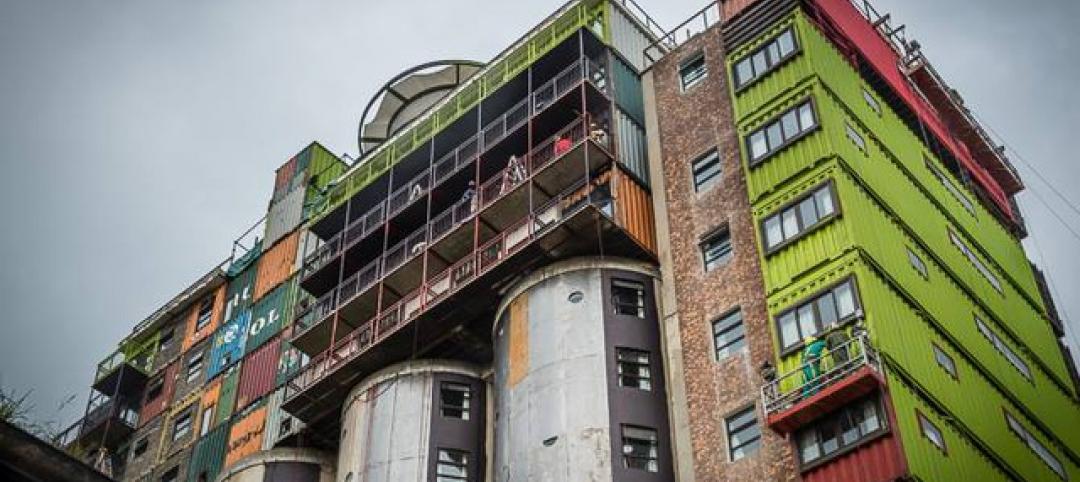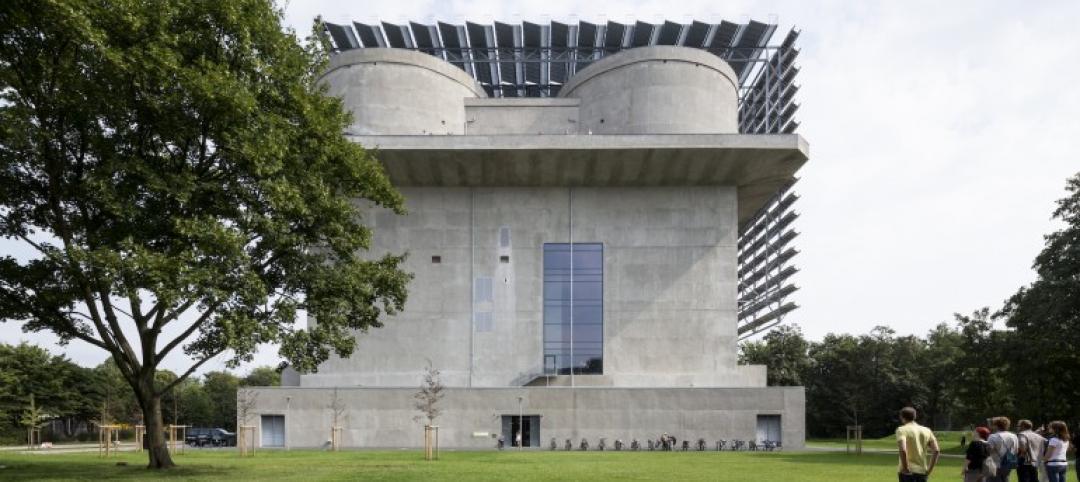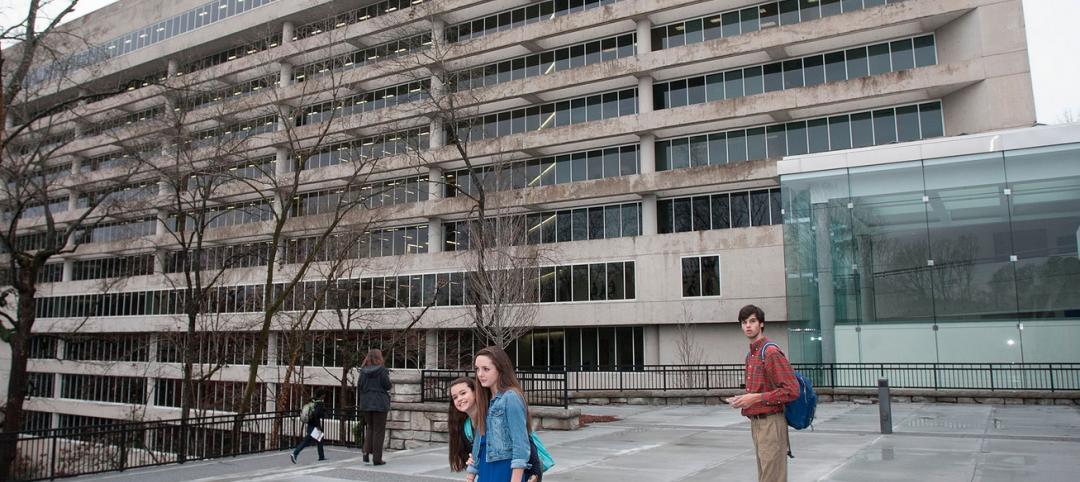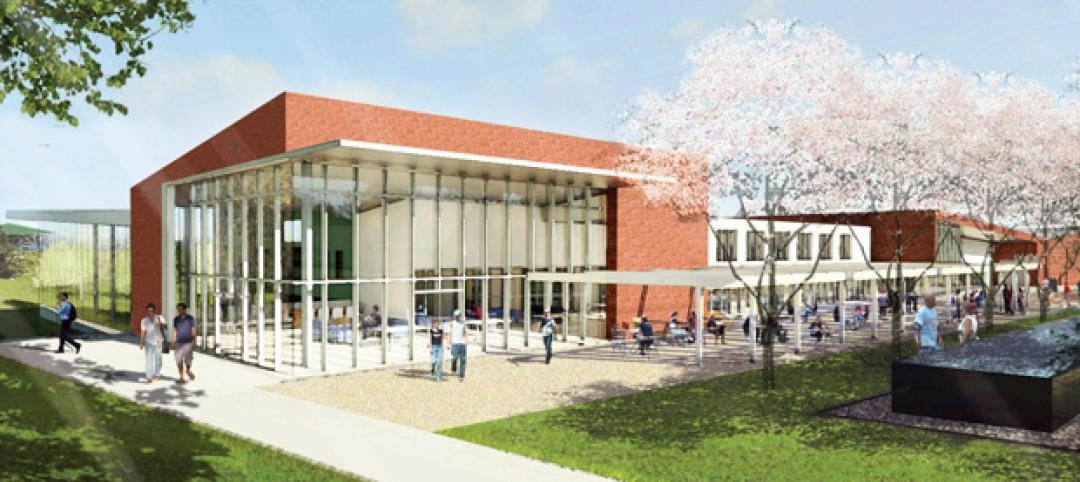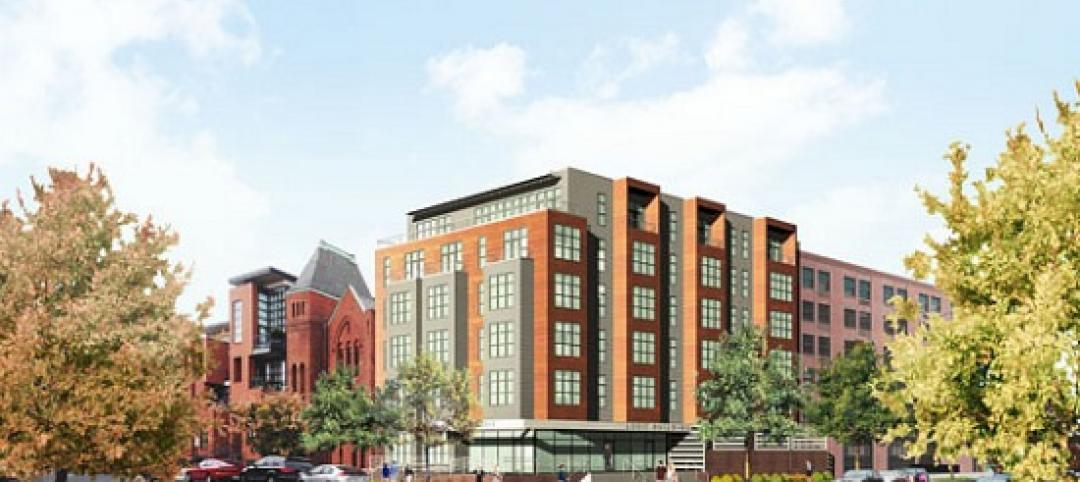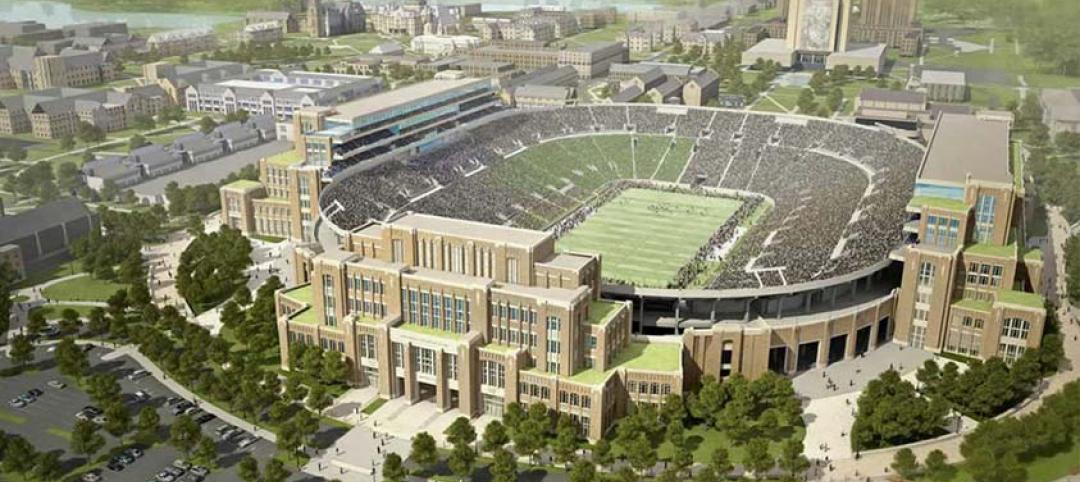For the past year, famed architect Frank Gehry has been assembling a team of architects and designers for the purpose of figuring out how to turn the system that currently prevents stormwater runoff from flooding the 52-mile-long Los Angeles River into a system that captures and even treats that stormwater for reuse.
The challenge would be allowing public access to the river, at a time when the entire state of California is struggling with drought conditions, without jeopardizing a flood-prevention system that’s been in place since before World War II. And if this plan were to take shape, what impact would it have on local neighborhoods near the river?
The federal government has earmarked $1.3 billion in funding to transform this river system into an urban waterway.
The Los Angeles Times reports that Gehry’s office, working pro bono so far, has already produced a 3D point-cloud hydrology model for 70% of the river. Now Gehry and his client, the nonprofit L.A. River Revitalization Corp., which formed in 2009 to coordinate river policy, must convince politicians, river advocates, and potential investors that this plan is workable.
The 86-year-old Gehry, who lives in L.A., reportedly agreed to take on this assignment only if it were primarily a water-reclamation project and not a redevelopment scheme that “brands” the river. And one of the main components of his plan would be to allow the public to use the river or its banks when the risk of flooding is low, which is most of the time.
Gehry’s involvement has certainly led to skepticism about the wisdom of handing this project over to someone with no water-management expertise. Gizmodo’s Urbanist Editor, Alissa Walker, worries that Gehry’s past architectural work “doesn’t show many gestures to the natural environment”. She also points out that in Los Angeles, public opinion about Gehry is polarized.
However, the involvement of a famous and well-connected architect could appeal to Mayor Eric Garcetti, who has a reputation for being overly cautious when it comes to pulling the trigger on costly infrastructure improvements. (Garcetti’s office confirmed that Gehry was working on a master plan for the river after the Times broke this story.)
The Times suggests that Garcetti could position this river plan as an anchor of a major policy and civic-design initiative, and as a chance to tackle several major issues including public health (thanks to new riverside parks and walking and biking paths), climate change and even affordable housing (if public land can be used along the river for new construction).
However, Garcetti isn’t the only one who needs convincing, as one-third of this river is outside of L.A.’s city limits (the flood prevention system runs through Long Beach to the ocean), and there are several cities and jurisdictions that would have to sign off on any proposal.
Two younger architects at Gehry Partners, Tensho Takemorio and Anand Devarajan, have been leading this effort. The team also includes Richard Roark of the Philadelphia-based landscaping architectural firm Olin, a Dutch water management expert named Henk Ovink, and consultants from the engineering firm Geosyntec.
The team developed the 3D model with Trimble, a technology firm that acquired Gehry Technologies last year.
Gehry is quoted as saying that his plan would complement earlier plans, including The Los Angeles River Revitalization Master Plan, developed by an ad hoc committee, which would also allow public access but focuses on establishing environmentally sensitive urban design and land use guidelines. And there’s also Alternative 20, a federal plan that calls for a dramatic redesign of an 11-mile stretch of the river near downtown. However, Gehry does not think it would be necessary to remove the concrete funnel that diverts floodwaters seaward.
Related Stories
| Feb 14, 2014
Must see: Developer stacks shipping containers atop grain silos to create student housing tower
Mill Junction will house up to 370 students and is supported by 50-year-old grain silos.
| Feb 13, 2014
Extreme Conversion: Nazi bunker transformed into green power plant, war memorial
The bunker, which sat empty for over 60 years after WWII, now uses sustainable technology and will provide power to about 4,000 homes.
| Feb 5, 2014
Extreme conversion: Atlanta turns high-rise office building into high school
Formerly occupied by IBM, the 11-story Lakeside building is the new home for North Atlanta High School.
| Jan 31, 2014
6 considerations for rehabbing student union buildings
Most colleges and universities feel pressure to offer the latest amenities in order to attract and retain the best and brightest students. While hauling in the bulldozer to create modern facilities is attractive in some regards, deciding to renovate can be just as effective and, in some cases, even preferable to new construction.
| Jan 29, 2014
Historic church will be part of new condo building in D.C.
Sorg Architects unveiled a design scheme for 40 condos in a six-story building, which will wrap around an existing historic church, and will itself contain four residential units.
| Jan 29, 2014
Notre Dame to expand football stadium in largest project in school history
The $400 million Campus Crossroads Project will add more than 750,000 sf of academic, student life, and athletic space in three new buildings attached to the school's iconic football stadium.
| Jan 14, 2014
D.C. Navy Yard building, site of mass shooting, will be renovated
A remembrance area and a new visitor's entrance will be among the changes when the Navy rebuilds Building 197 of the Washington Navy Yard, where a gunman killed 12 people and then was killed in a shooting spree in September 2013.
| Jan 6, 2014
Energy-efficiency retrofits can help reduce healthcare costs
Reducing energy consumption through energy-efficiency retrofits represents an underappreciated way to cut healthcare costs, according to the Rocky Mountain Institute.
| Jan 2, 2014
West Hollywood drug den to be remade into boutique hotel
San Vicente Inn, a cluster of century-old historic bungalows, known as a haven for nudists and drug users, in West Hollywood, Calif., will be converted into a boutique hotel.
| Dec 31, 2013
Top 10 blog posts from 2013
BD+C editors and our contributors posted hundreds of blogs in 2013. Here's a recap of the most popular topics. They include valuable lessons from one of the first BIM-related lawsuits and sage advice from AEC legend Arthur Gensler.



